


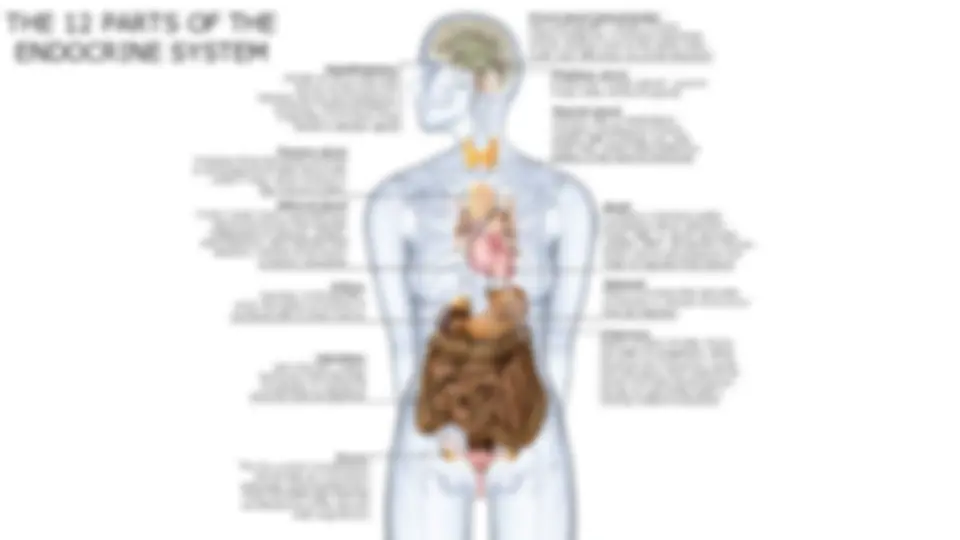
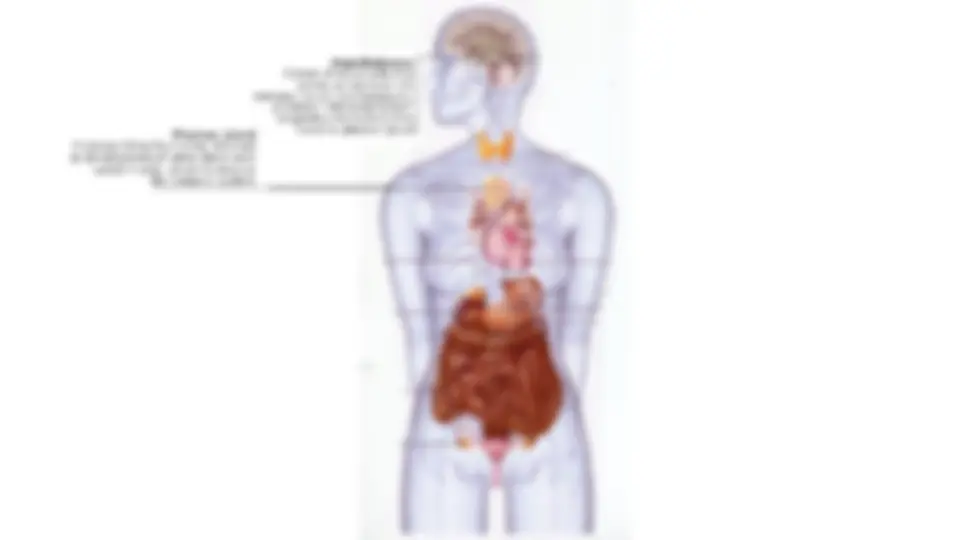
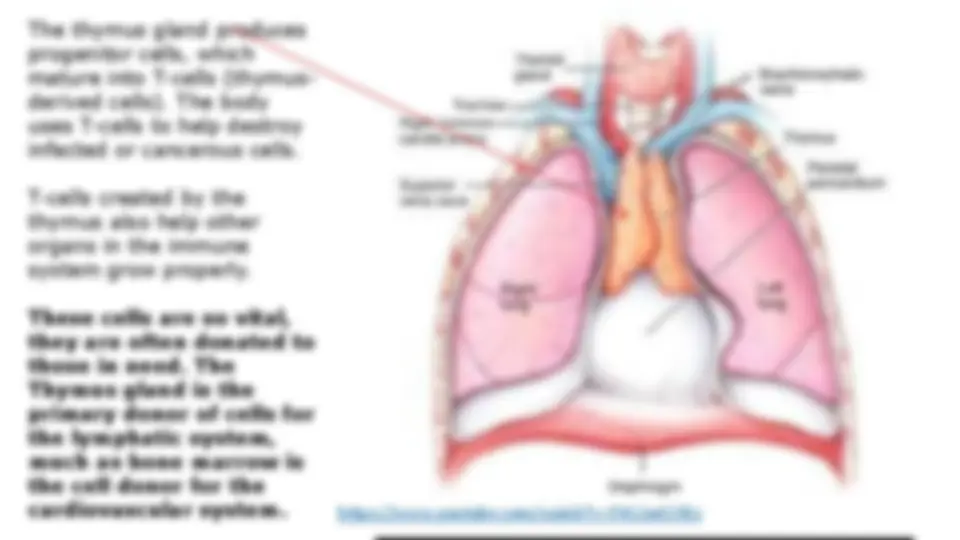
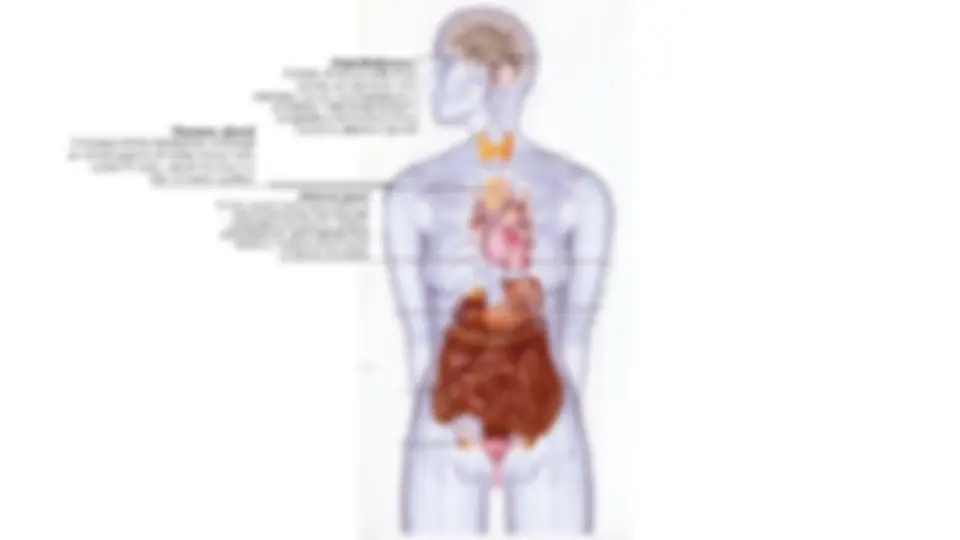
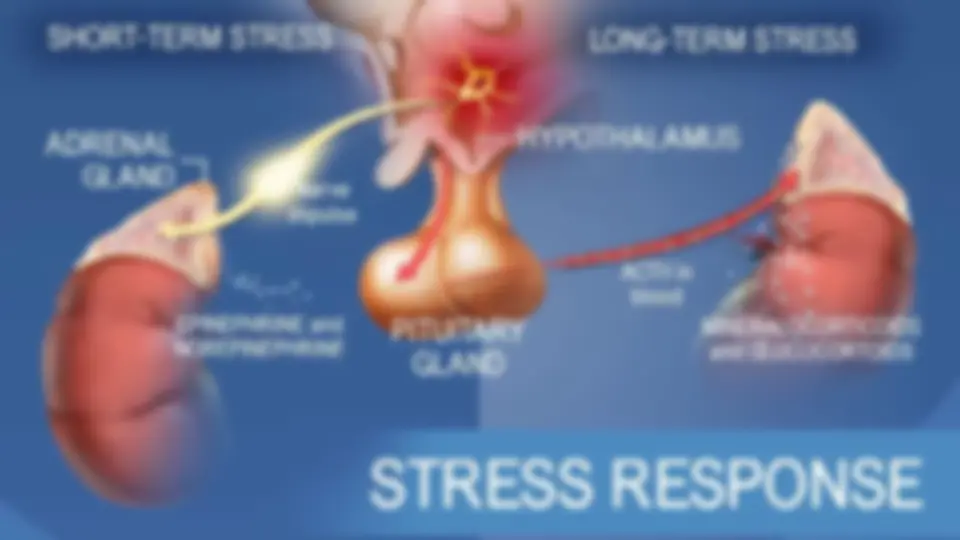
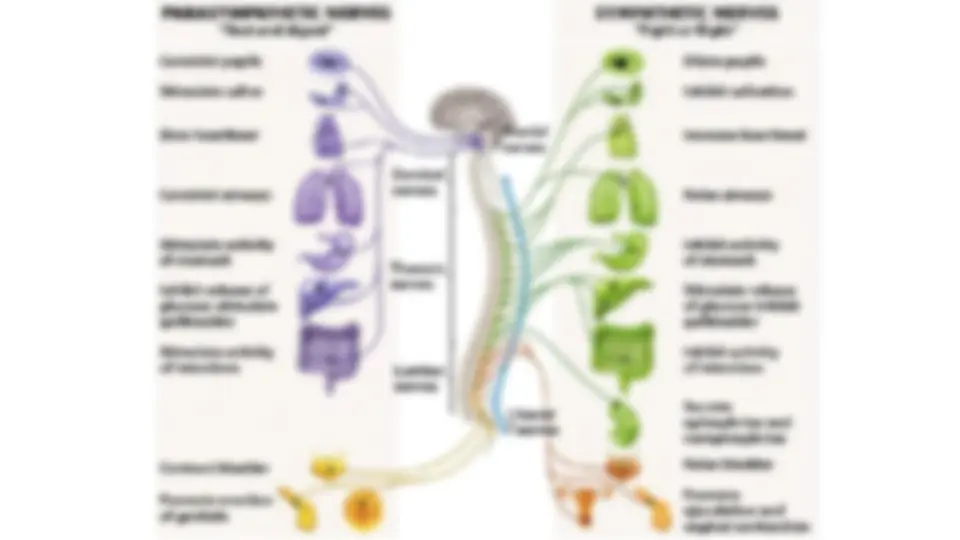
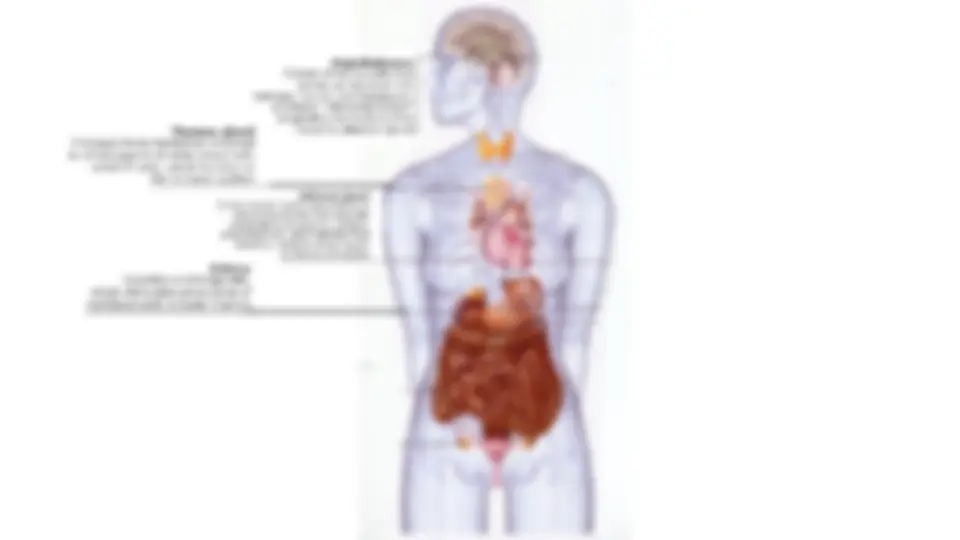
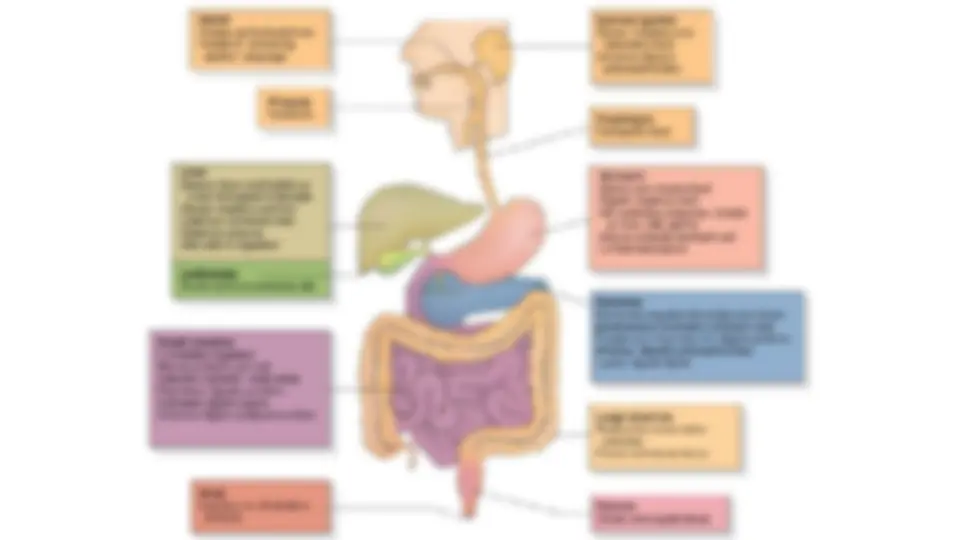
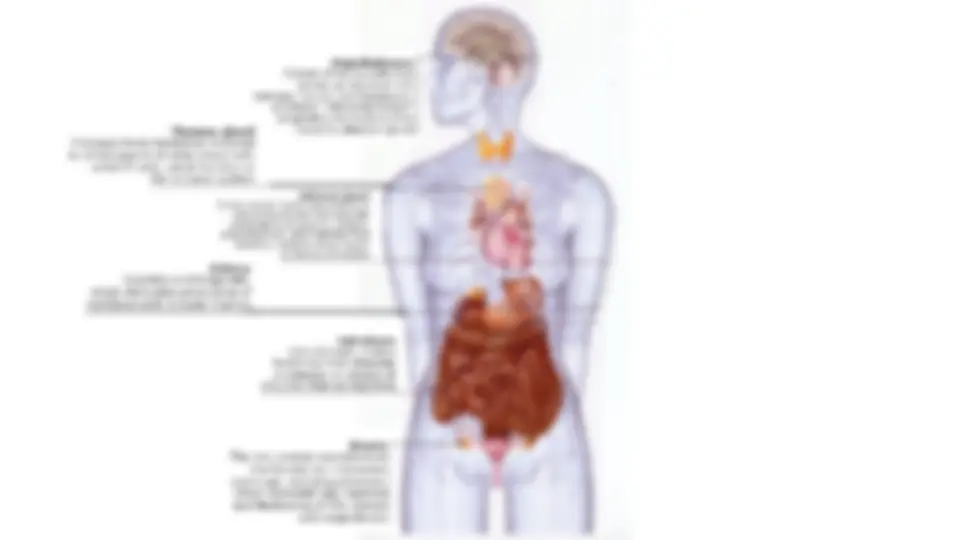
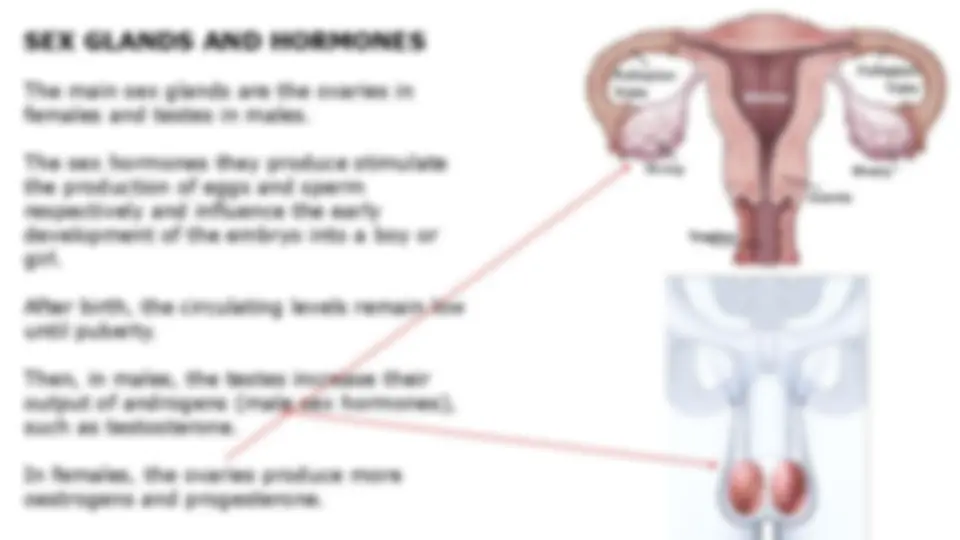
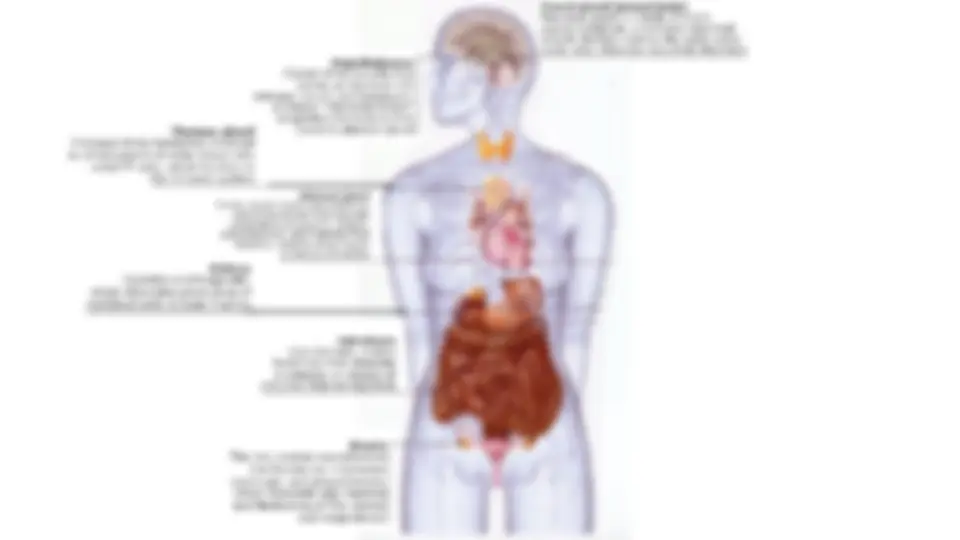

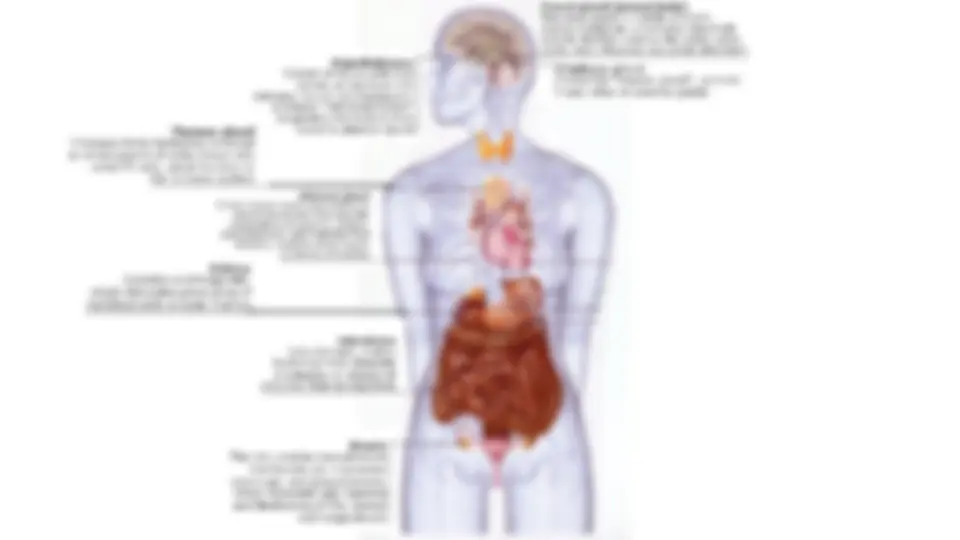
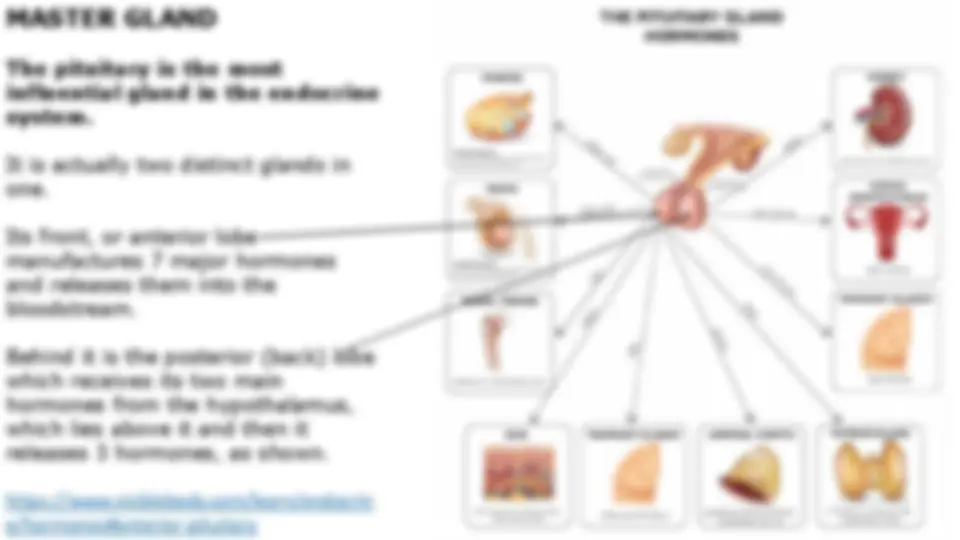
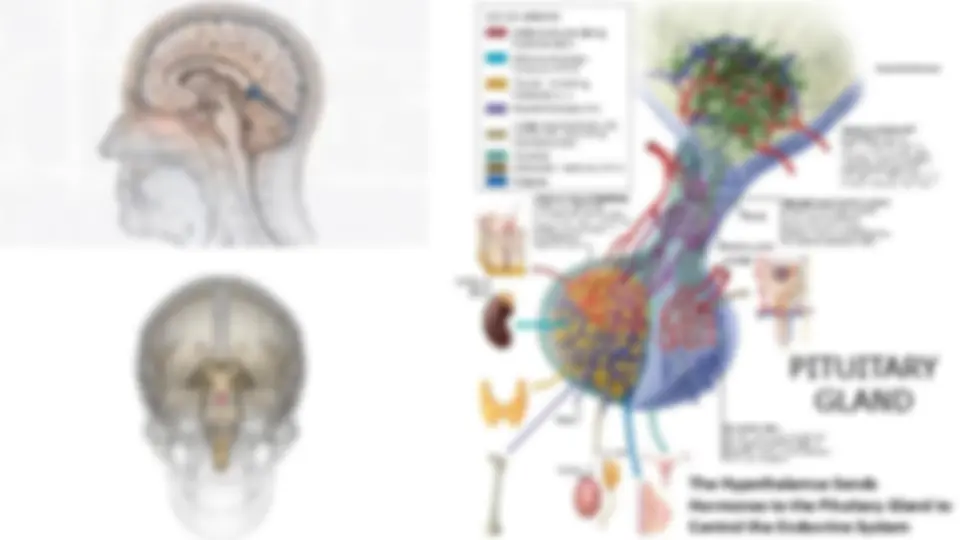
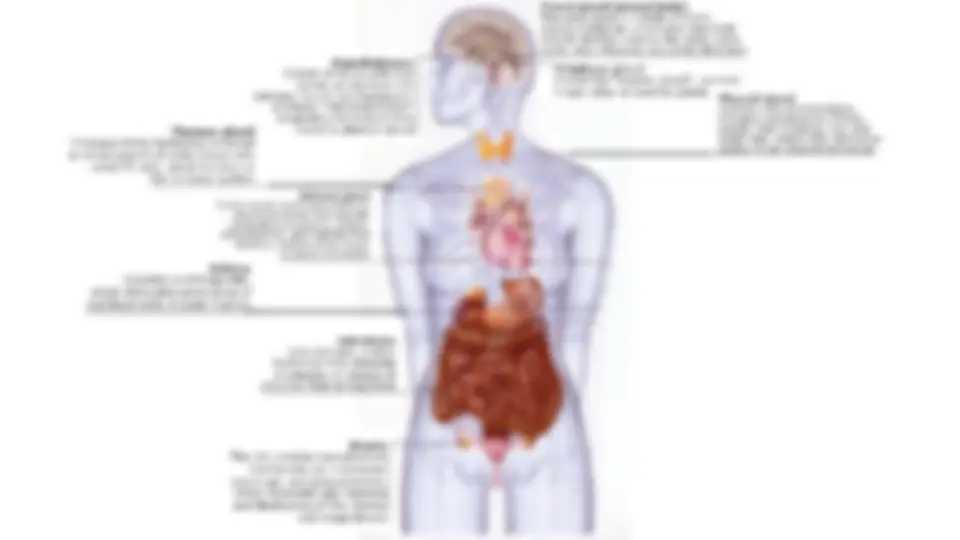
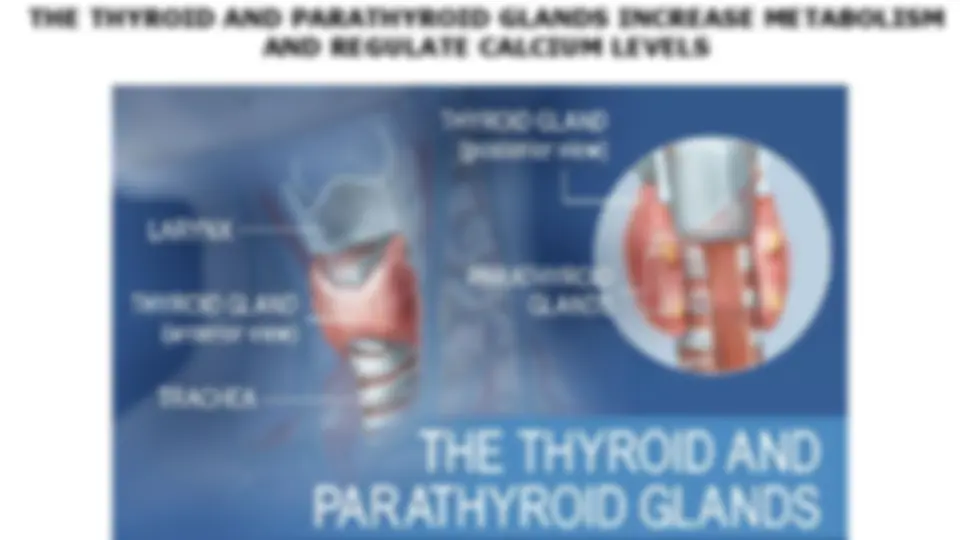
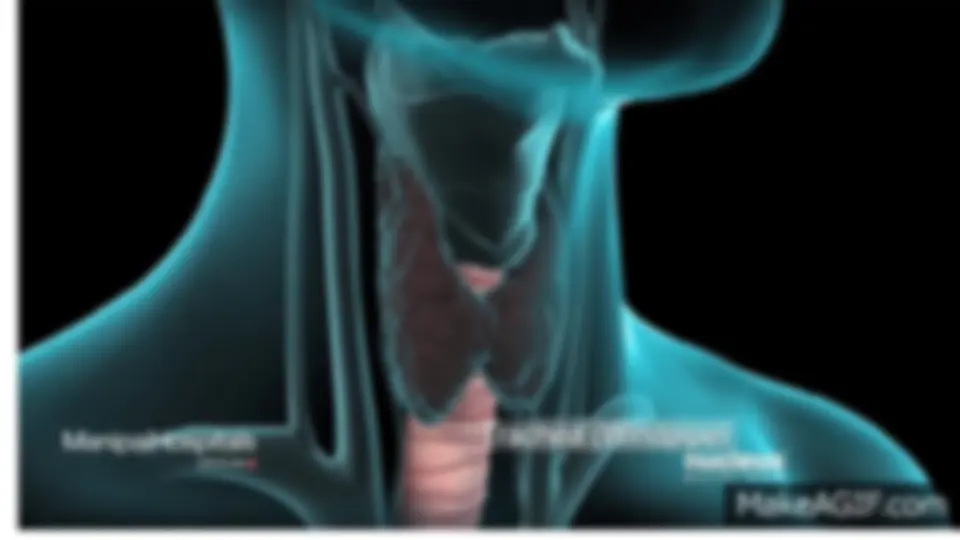
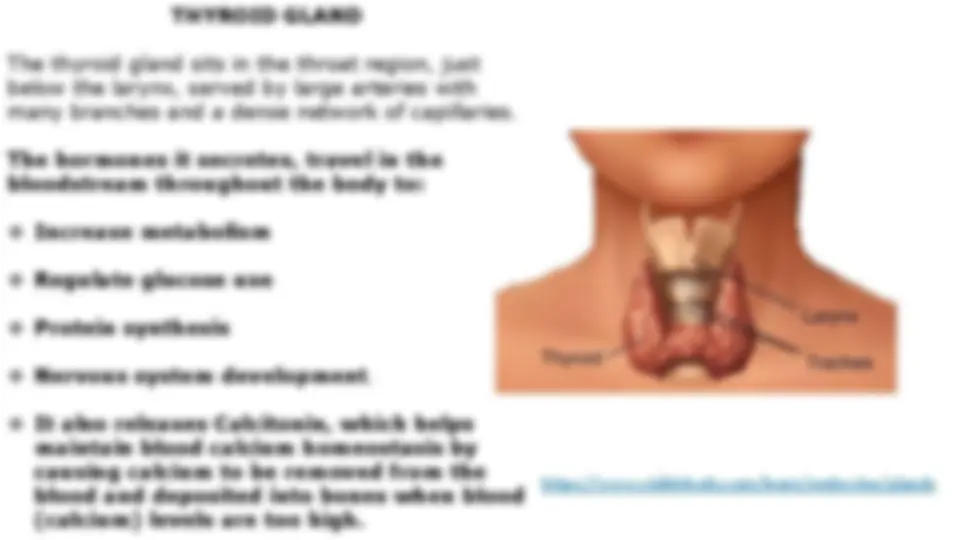
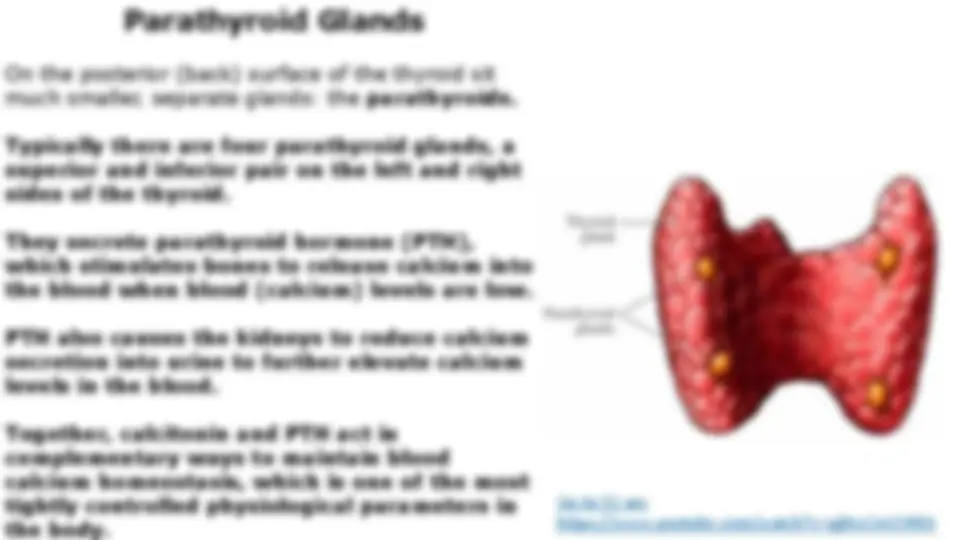

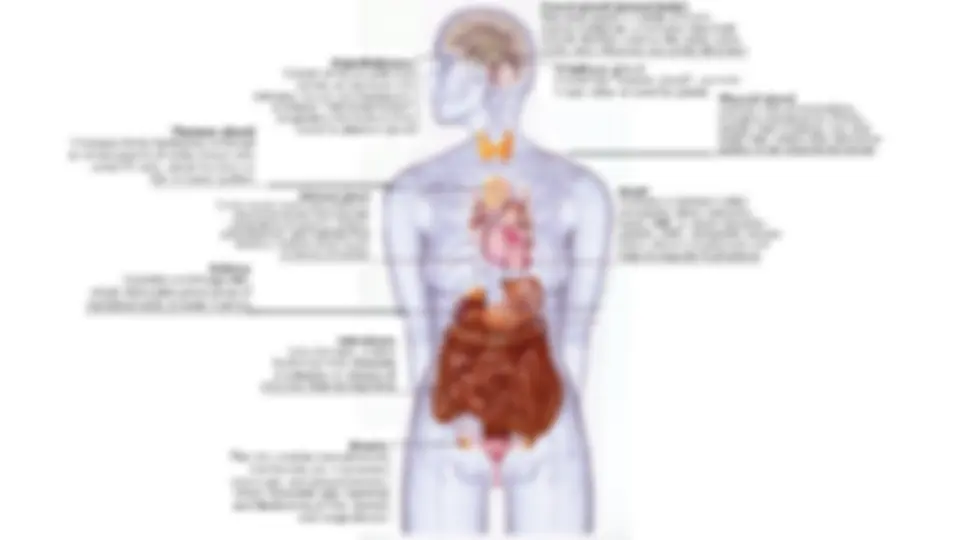
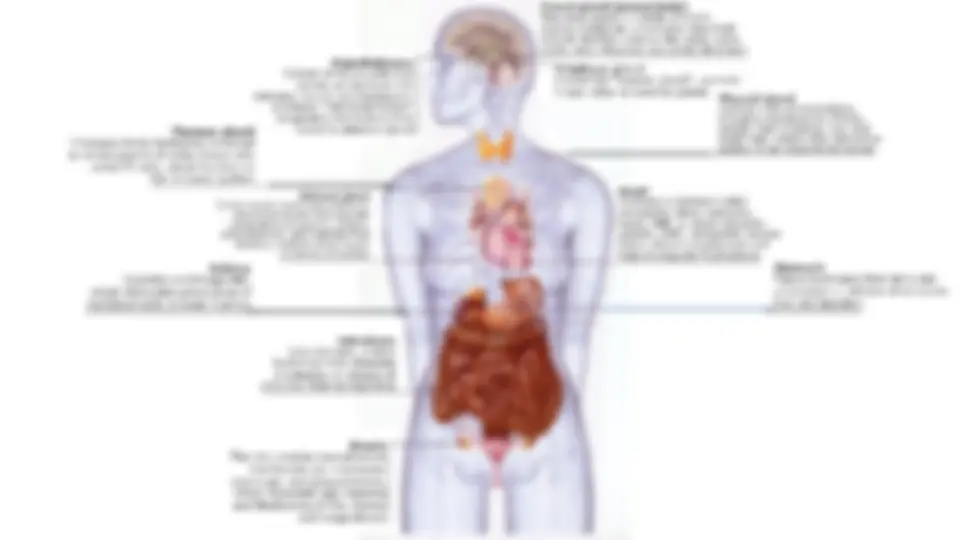
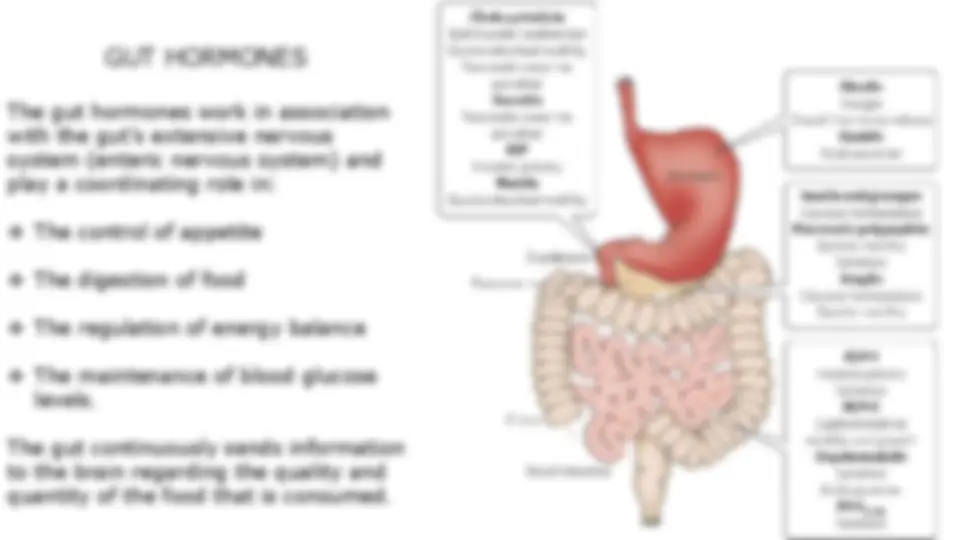
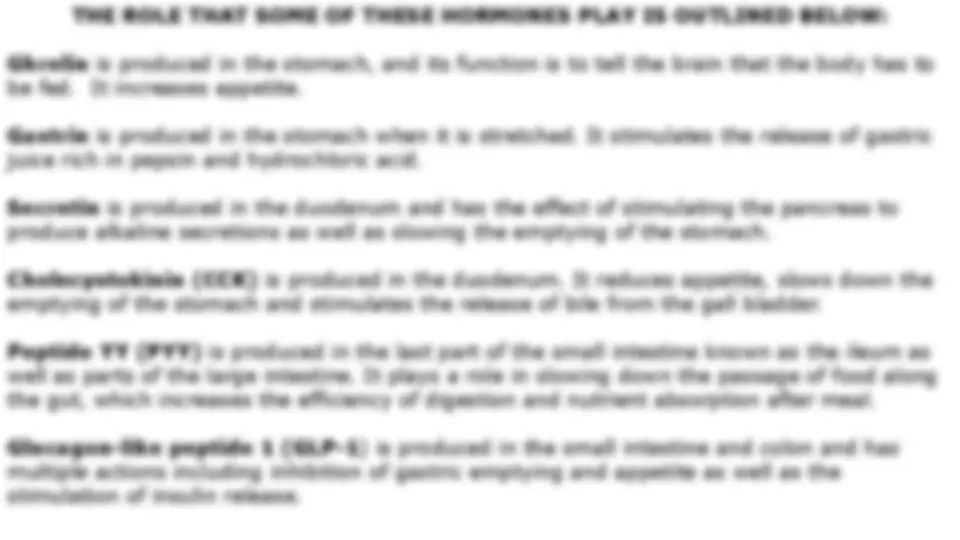
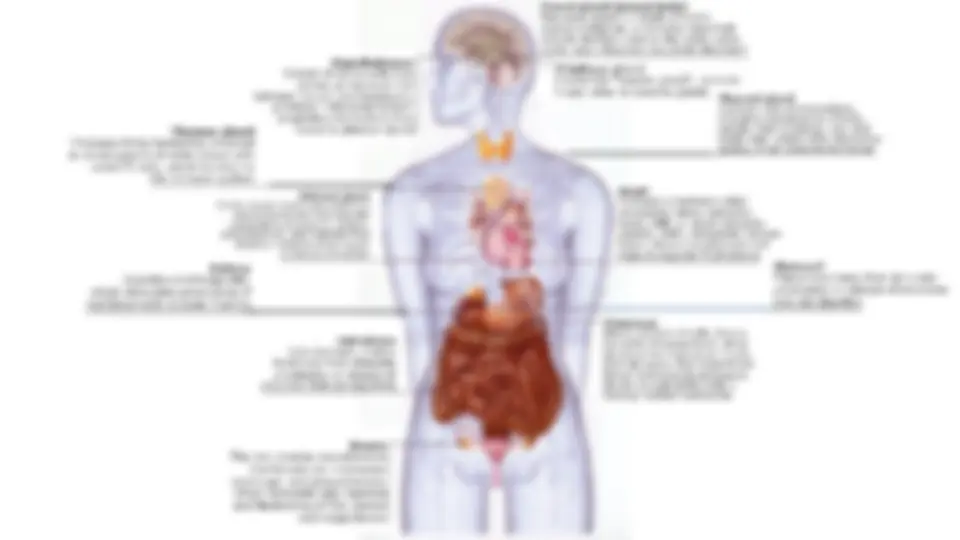
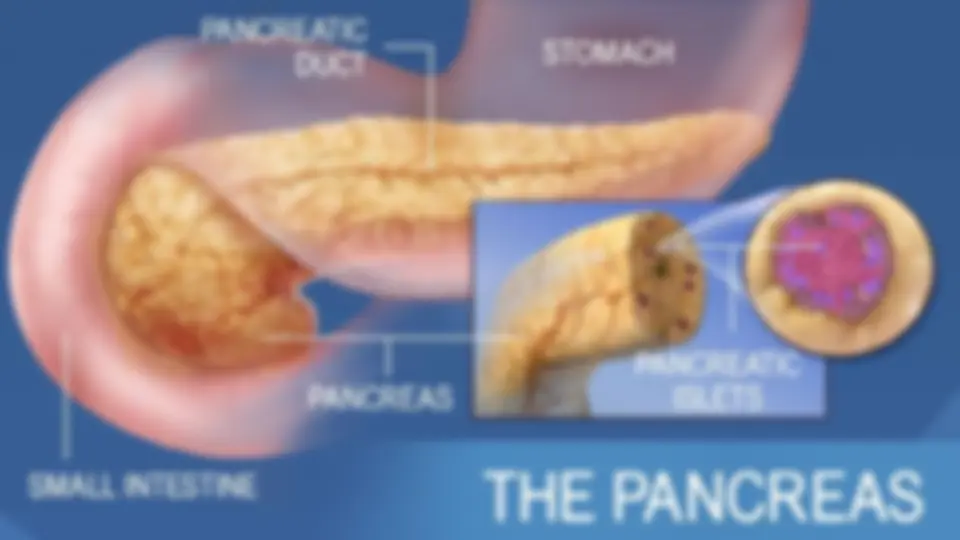
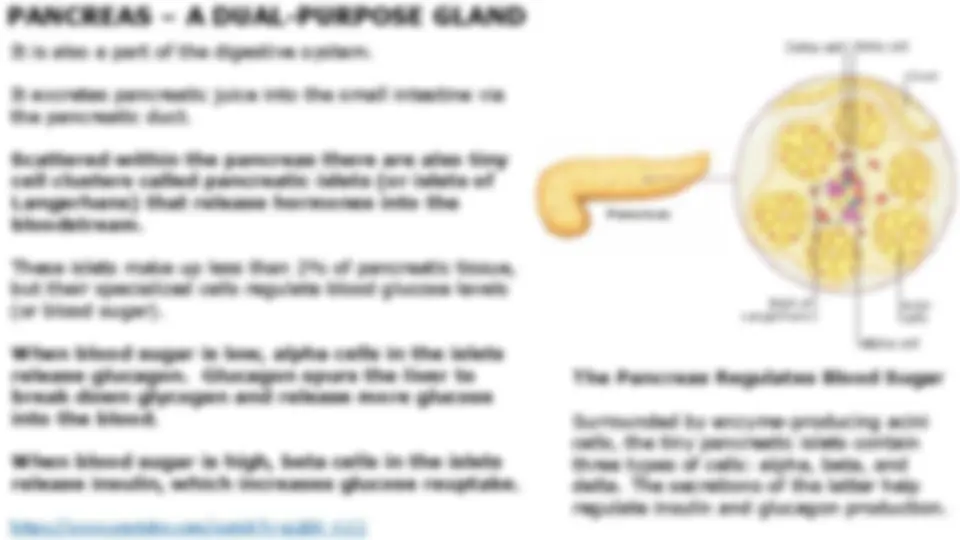




Study with the several resources on Docsity

Earn points by helping other students or get them with a premium plan


Prepare for your exams
Study with the several resources on Docsity

Earn points to download
Earn points by helping other students or get them with a premium plan
Community
Ask the community for help and clear up your study doubts
Discover the best universities in your country according to Docsity users
Free resources
Download our free guides on studying techniques, anxiety management strategies, and thesis advice from Docsity tutors
These glands have no ducts but secrete their hormones directly into the blood, by which means they reach every cell in the body.
Typology: Study notes
1 / 40

This page cannot be seen from the preview
Don't miss anything!

































The Endocrine system sends hormones through the Circulatory system to control and coordinate body functions in much the same way as the nervous system uses tiny electrical signals.
The Endocrine system and the Nervous system work together to integrate in the brain and complement each other, but they tend to work at different speeds.
Nerves respond within split-seconds but their action soon fades
Some hormones have longer lasting effects and act over hours, weeks, and years.
Hormones regulate processes such as:
The breakdown of chemical substances in metabolism of what we eat and drink
Fluid balance and urine production
The body’s growth and development
Sexual reproduction.
The hypothalamus and the pituitary gland are part of the diencephalon region of the brain.
The hypothalamus connects the nervous system to the endocrine system. It receives and processes signals from other brain regions and pathways and translates them into hormones, the chemical messengers of the endocrine system.
These hormones flow to the pituitary gland, which is connected to the hypothalamus by the infundibulum. Some hormones are stored in the pituitary stores for later release; others spur it to secrete its own hormones. The hormones released by the pituitary gland and the hypothalamus control the other endocrine glands and regulate all major internal functions.
2 HORMONES MADE BY THE KIDNEYS
The kidneys make two main hormones, vitamin D and erythropoietin.
Vitamin D is essential for a number of different functions in the body.
Most of the vitamin D that is in the blood is inactive and it is modified by the kidney and other tissues to activate it.
Active vitamin D stimulates the uptake of calcium from food, is important for the maintenance of healthy bones and also helps to regulate the response of the immune system to infection.
Erythropoietin is produced when oxygen levels in the blood are low.
It acts in bone marrow to stimulate the production of mature red blood cells and to maintain healthy oxygen levels in our tissues.
The main sex glands are the ovaries in females and testes in males.
The sex hormones they produce stimulate the production of eggs and sperm respectively and influence the early development of the embryo into a boy or girl.
After birth, the circulating levels remain low until puberty.
Then, in males, the testes increase their output of androgens (male sex hormones), such as testosterone.
In females, the ovaries produce more oestrogens and progesterone.